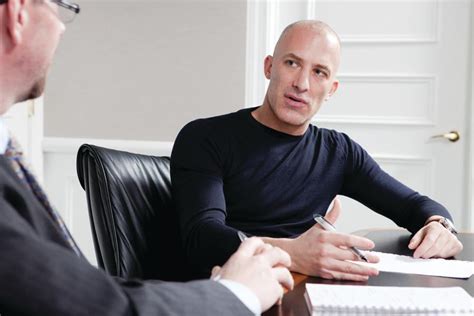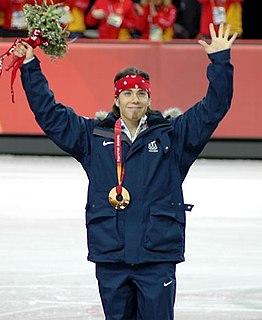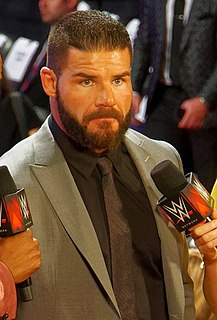A Quote by Ander Crenshaw
You've got to look at the promises I kept. It's not just talking about doing things: it's doing them.
Related Quotes
It seems to me that one of the most interesting things about God as a concept, if you decide to believe in God, is that God's ways are unknowable. And God obviously, look at the world around you, does or is responsible for some terrible, terrible, awful things. A young girl kidnapped and kept in the darkness and sexually abused. The deaths of six million Jews. A mudslide that buries a village. All of these things. If God is doing the good stuff, he's got to be doing that stuff too.
What good is talking if neither of you are really committed? If one of you had an affair or got addicted to drugs or was abusive, simply talking about it wouldn;t take the hurt away; or fix the trust that's been lost. In the end, marriage comes down to actions. I think people talk too much about the things that bother them, instead of actually doing the little things that keep a marriage strong.
Everyone used to chuck snails at each other at school, and I used to try and save them. And not only did I get in trouble for it, I got suspended for doing it. For saving the snails I kept about four or five hundred of them at the back of the class -- in Snail Land. We were like six or seven or something, people didn't even realise what they were doing. I had a strange compassion for snails. And the teacher just chucked them all in the trash in the end.
They will do more whether we do what we're doing or whether we don't do what we're doing. And the idea that you could appease them [terrorists] by stopping doing what we're doing or some implication that by doing what we're doing we're inciting them to attack us is just utter nonsense. It's just - it's kind of like feeding an alligator, hoping it eats you last.
I'm a very visual thinker, so the characters are running through my head, doing what they're doing when I'm writing them. And there'll be moments where I'll just kind of throw a look off to the side as if I'm talking to one of the characters. It's always been something that I've had with me since I was a little kid.
We don't look at problems logically, we look at them emotionally. We look at them through the guts. We look at them as if we're doing a high school problem, like what is beautiful, what makes me recognized among my peers. We don't go and think about things. We, as a society, don't wish to engage in rational thought.


































